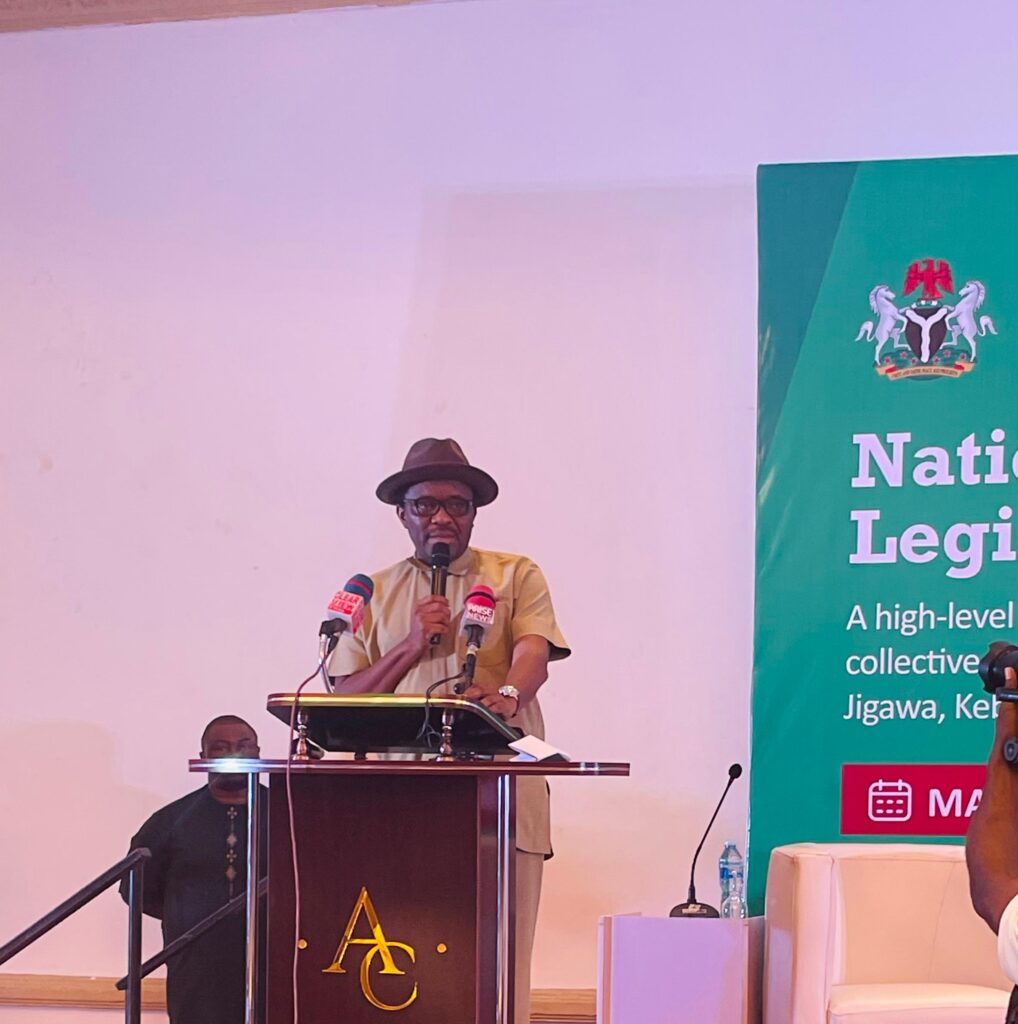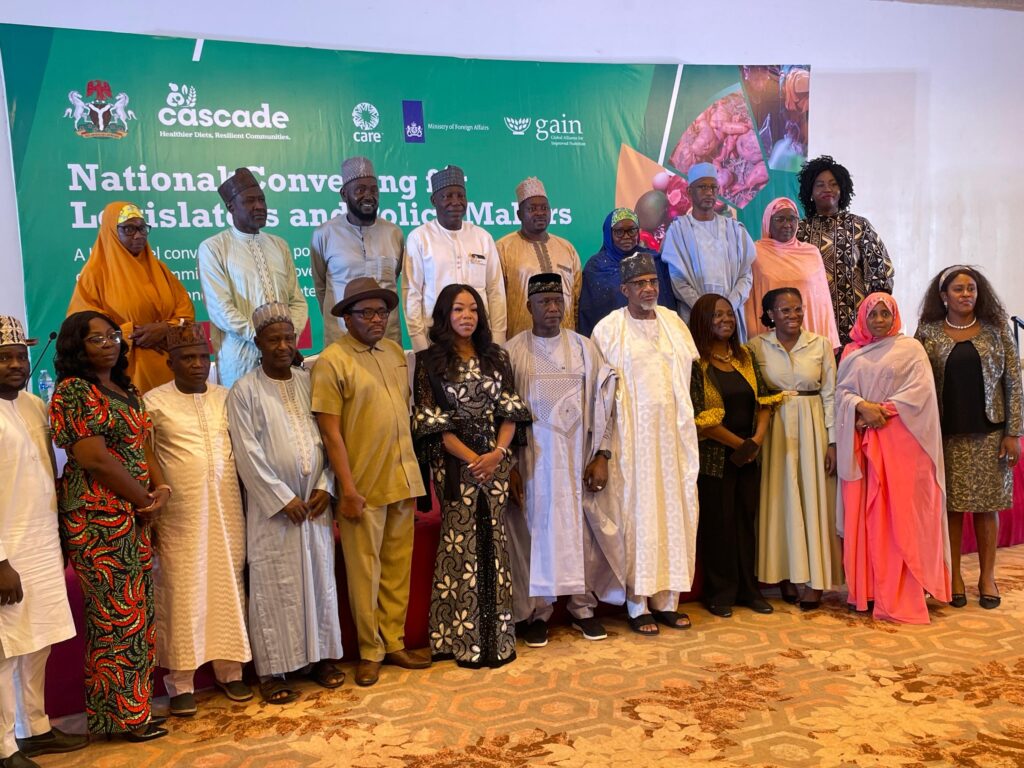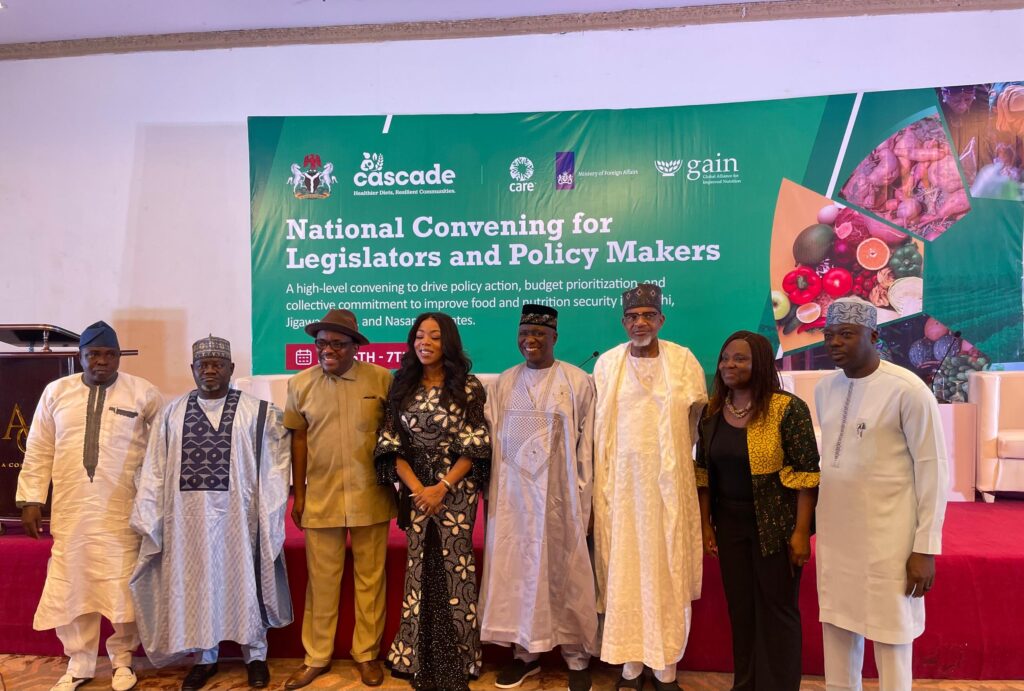
Rep. Chike Okafor Calls for Accountability, Funding Boost to Combat Malnutrition in Nigeria
Chairman of the House Committee on Nutrition and Food Security, Hon. Chike Okafor, PhD, has called for better accountability and increased resource allocation as critical steps towards reversing Nigeria’s worsening nutrition indices.

He made this call while delivering a keynote address at the Legislative Convening on Nutrition and Food Security for Bauchi, Jigawa, Kebbi, and Nasarawa States, held at the Abuja Continental Hotels on Tuesday,May 6,2025,
The high-level convening drew key stakeholders from across the public and development sectors, including the Country Director of the Global Alliance for Improved Nutrition (GAIN), Dr. Michael Ojo, the Special Adviser to the President on Health, Uju Rochas-Anwuka, the Speaker of the Kebbi State House of Assembly, Alhaji Muhammad Usman-Zuru, the Speaker of the Bauchi State House of Assembly, Rt. Hon. Dr. Abubakar Suleiman and State House Committee Chairmen on Nutrition and Food Security and on Health.

Also in attendance were other State legislators, local government chairmen, representatives of the state governments of Kebbi, Bauchi, Jigawa, and Nasarawa, officials from the Ministries of Health and Women Affairs, and representatives of international donor agencies.

Hon. Okafor expressed deep concern over the findings of the 2023/2024 National Demographic Health Survey (NDHS), which revealed sharp reversals in key nutrition indicators, including under-five malnutrition, stunting, wasting, and maternal anaemia.
According to him, despite decades of national nutrition policy development and donor-supported interventions, the country’s outcomes have remained poor, especially in states like Bauchi, Jigawa, Kebbi, and Nasarawa.

“This situation reflects a systemic failure in policy implementation, resource allocation, and accountability.
“We cannot continue with business as usual. There is an urgent need to interrogate why we are here and how we can chart a path forward.” He said.
He noted that the National Assembly, recognizing the urgency of the crisis, established the first-ever Committee on Nutrition and Food Security under the 10th Assembly, an initiative he now chairs.
The Committee, he explained, has already held its inaugural meeting and conducted a strategic retreat with stakeholders, including development partners like the Global Alliance for Improved Nutrition (GAIN),to define a more effective approach to addressing nutrition challenges.
Okafor lamented that most existing national nutrition policies, including the National Multi-sectoral Plan of Action for Food and Nutrition (NMPFAN 2021–2025) have seen limited implementation.
He questioned whether the NMPFAN had achieved even 50% of its targets and stressed the need for a paradigm shift, particularly in how interventions are monitored and delivered at the grassroots level.
“It is no longer enough to focus on policy formulation and workshops. We must take implementation to the wards and local governments. Hunger and food insecurity are time bombs that fuel poverty and conflict,” he said.
The lawmaker identified key challenges hindering progress: weak accountability mechanisms, poor resource allocation, sectoral fragmentation, and data gaps.
He emphasized the role of the legislature in tackling these issues through oversight, appropriation, and policy reform.
Hon. Okafor called for: Clear institutional mandates across government agencies; Strengthened monitoring and evaluation systems, including the use of public dashboards; Community engagement through civil society, the media, and local participation; Legislative oversight of both government and donor-funded nutrition activities; and Performance-based incentives that reward high-performing states and LGAs.
He also criticized the opacity surrounding the operations of some international development partners, urging them to adopt greater transparency in line with global best practices.
Hon. Okafor, on resource allocation, advocated for: Increased budgetary commitment to nutrition at all levels of government; Efficient fund management through transparent procurement and timely disbursement; Leveraging private sector and donor funding through innovative financial mechanisms; and Comprehensive costing of nutrition programs to support realistic and targeted budgeting.
In closing, he reaffirmed the National Assembly’s resolve to drive change through legislation, appropriation, and oversight.
“Working together, we can reduce malnutrition and food insecurity across Nigeria,” he concluded.


